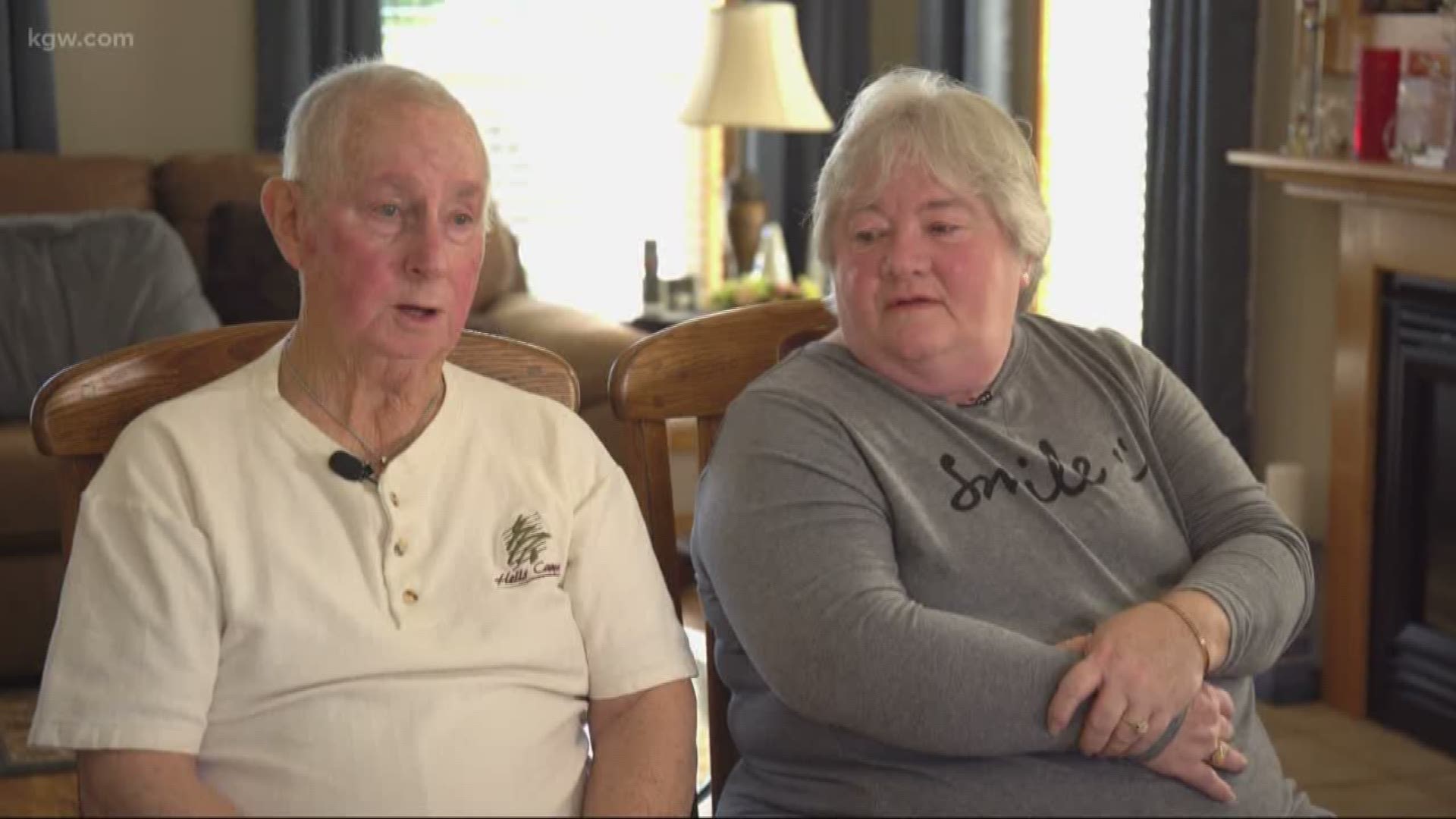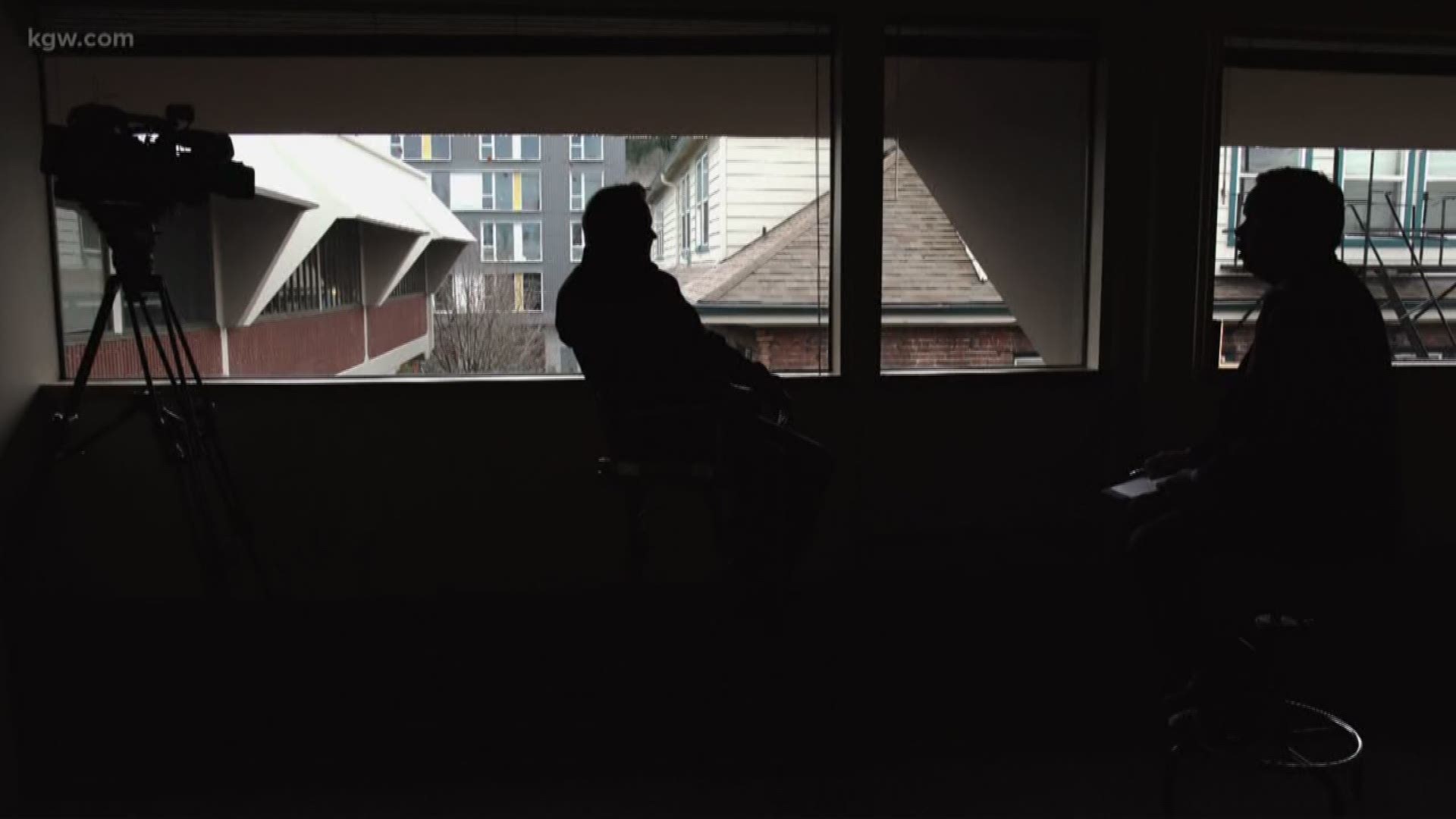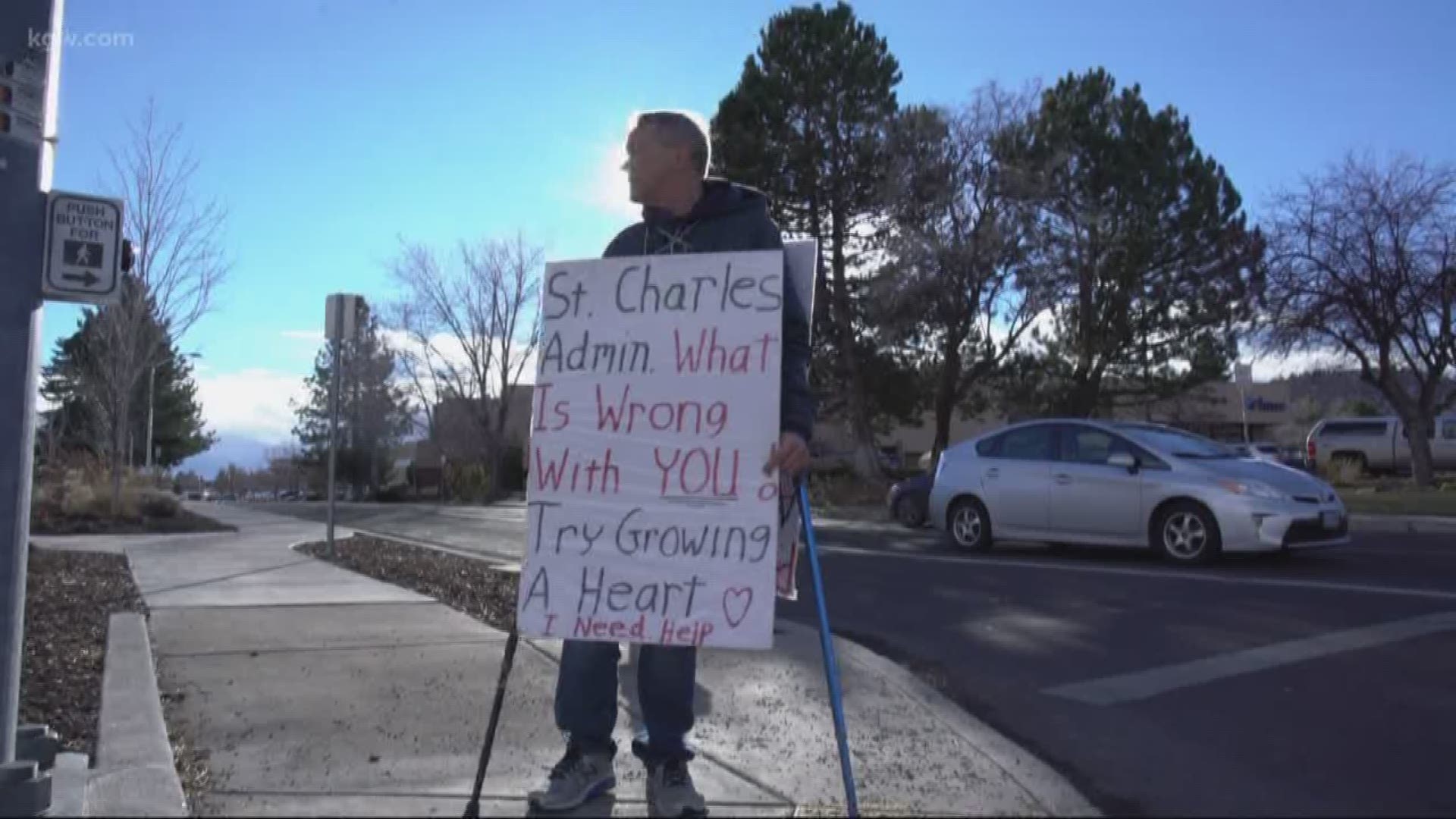PORTLAND, Ore. — Winning the lottery is the dream of many. But the reality is something few have dealt with. Some of the winners who responded to our survey sat down to talk with us about the challenges life presented after they won the big one.
"My neighbors still don't know."

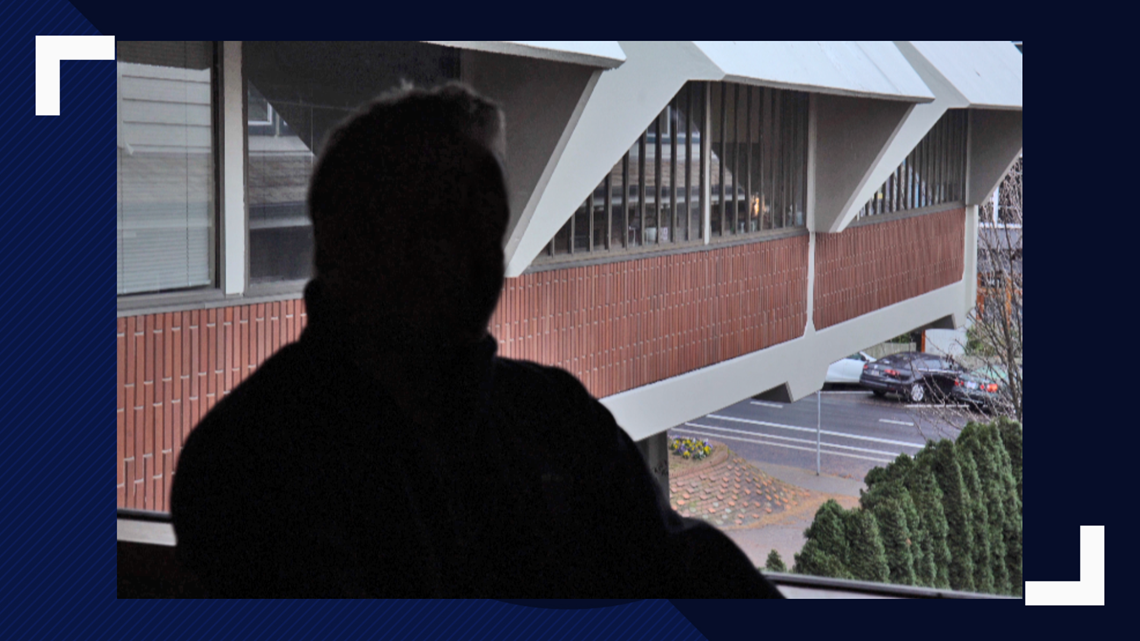
He loves sports cars and has the money to buy one- but doesn’t.
“It’s not really me,” said the millionaire lottery winner. “Just knowing that I could get one- that’s enough.”
The lottery winner, who agreed to speak with KGW on the condition of anonymity, hit a multi-million-dollar jackpot more than three years ago. Many of his neighbors still don’t know.
“We still have the same lifestyle. We haven’t changed a whole lot. You couldn’t pick us out of a crowd,” said the winner. “I’ve been working really hard at keeping my anonymity.”
In Oregon, information about lottery prizes is public record, including the name of the winners and the amount of their prize.
“I’ve found that when people do find out- they treat you differently,” said the winner.
Many jackpot winners say they’ve received unsolicited calls from investment firms or accountants hoping to manage their finances.
MORE INSTANT MILLIONAIRE STORIES:
“In the beginning, it was pretty tough. My phone would ring at 5:30 in the morning and it was ridiculous- one company after the next,” said the winner. “It got to the point where I wasn’t picking up the phone.”
The jackpot winner has used some of his money to help pay off other people’s mortgages and student loans- with no fanfare or publicity.
“It feels good- it’s nice,” explained the winner. “I mean that’s really the best way to spend lottery money.”
The Allens

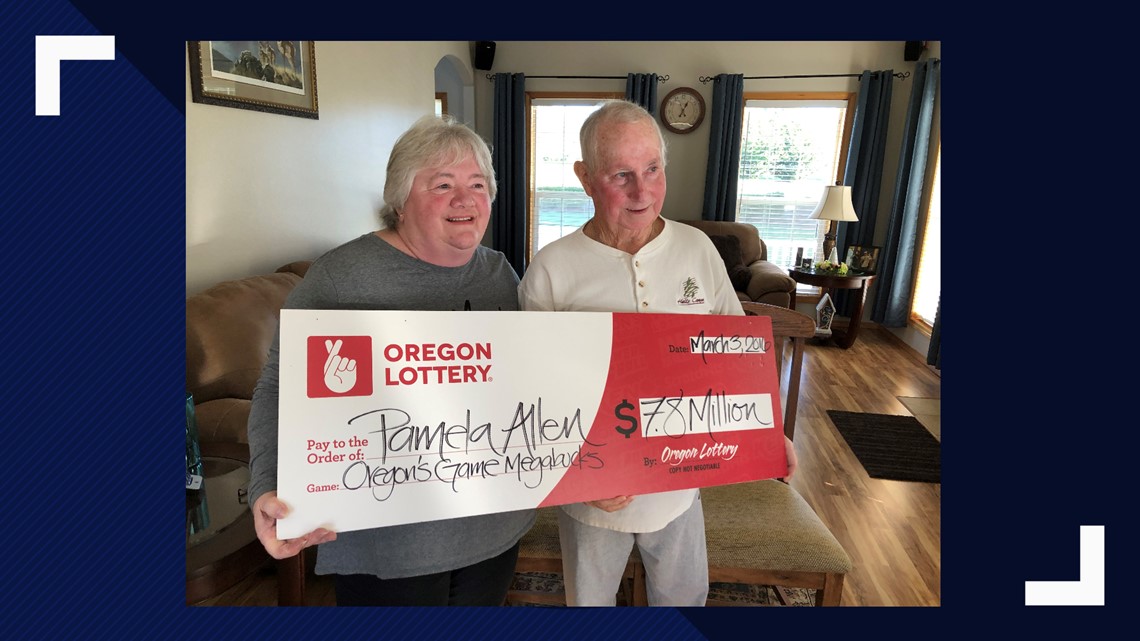
One month after winning a $7.8 million Megabucks jackpot in March 2016, Pam Allen got some heartbreaking news. Doctors diagnosed the Astoria woman with cancer.
“You go from such a high to this low where you are thinking, ‘Am I going to get to enjoy any of this money? What’s going to happen,” explained Allen.
After undergoing treatment, including chemotherapy- Allen is doing better. She and her husband Curt consider themselves lucky in more ways than one.
“Money won’t keep you healthy. It doesn’t keep you happy,” said Curt Allen. “If you aren’t happy before you win the money, money is not going to bring happiness. It might bring a little bit of happiness for a while, but not lasting happiness.”
The Allen’s said winning the lottery has provided financial security and an easier retirement. They don’t stress about paying bills anymore.
Aside from a new home and Toyota truck in the driveway, the Allen’s say their lifestyle hasn’t changed.
“We were content with our life when we didn’t have the money,” said Curt. “We are content now.”
Winner spends most days 'begging for help' in the street


Standing on a street corner in Central Oregon isn’t where you’d expect to find a Megabucks millionaire.
“I’m out on the side of the street begging for help with a sign,” explained Dennis Harny.
Harny, 63, said he spends four days a week standing outside of St. Charles Medical Center in Bend. He wears a sign across his chest and back displaying messages critical of the hospital.
“I actually had people throw things at me. I got hit with a burrito,” said Harny.
Harny admits- he would prefer to focus on better times.
In July 1998, Harny hit the jackpot for $4.2 million after matching six numbers in the Oregon Lottery’s Megabucks game.

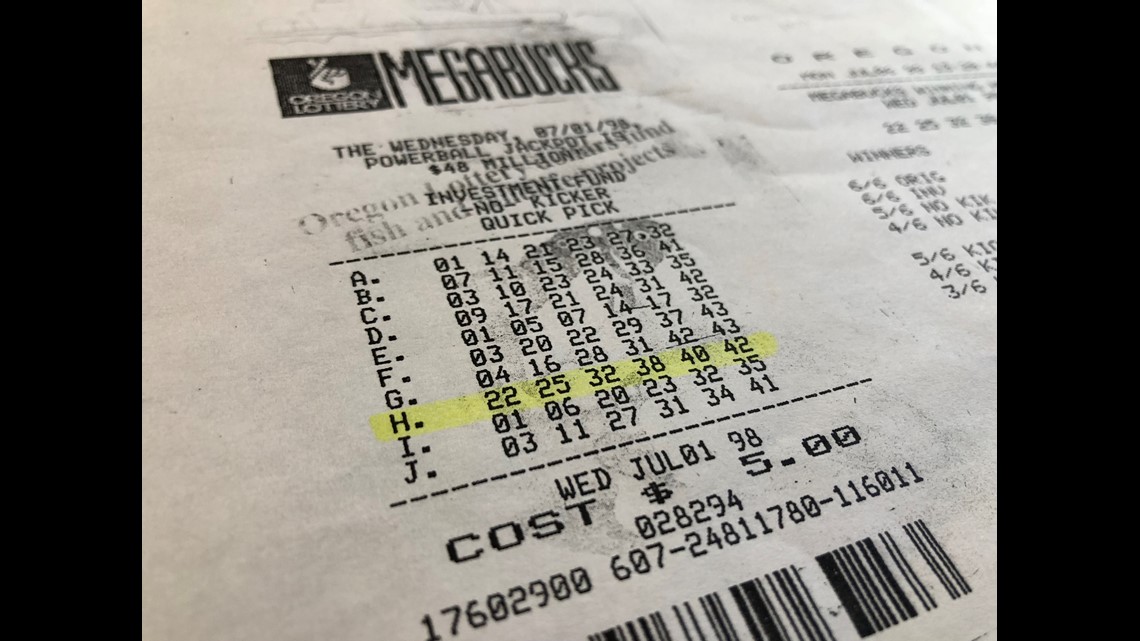
“I didn’t know what to do with the ticket,” explained Harny, who buried the ticket in his garden before turning it into lottery headquarters in Salem. After taxes, he collected a lump sum payment of $1.3 million.
Harny said he initially invested his money in treasury bills, then moved it into real estate.
“The money I make now off everything is probably equivalent to what I could make on a good paying job. The only difference is that I don’t have to work for it,” said Harny.
Winning the lottery has allowed Harny to travel and buy a nice home, but he’s not immune from life’s challenges.
His long-time girlfriend died by suicide roughly five years ago. Harny said he has post-traumatic stress. He is hobbled by a traumatic leg injury.
“I’ve had- as good a things that can happen to you and as bad a things,” explained Harny.
In June 2014, St. Charles Health Systems issued a No Trespass Order- banning Harny from its hospitals and outpatient clinics, except for emergency care.
“This no trespass order is based upon your communications with law enforcement both during and after your volunteer shifts,” read a letter dated June 2, 2014. The letter was signed by Gary Bruce, vice president and general counsel of St. Charles Health Systems.
Harny said he doesn’t understand why he was banned from the hospital in Bend, where he volunteered for more than a decade. He also received care at St. Charles.
“I’ve lost my care on my leg- I’ve lost my social life that I had by going there and volunteering- the people loved me,” said Harny as he stood outside the hospital.
St. Charles provided the following statement regarding Dennis Harny:
“While we don’t comment on specific legal matters, generally we would only issue a trespass notice if a person were to exhibit aggressive, illegal or violent behavior as defined by company policy. This could include harassment, abusive language, unlawful or disruptive conduct, threats, physical or verbal assault or failure to comply with staff direction pertaining to appropriate conduct.”
Harny said the medical specialist who treated his leg also withdrew from treatment in 2014. A spokesperson for The Center Orthopedic & Neurosurgical Care & Research declined to comment citing patient privacy laws.
The lottery jackpot winner said standing outside the hospital with a sign has become part of his routine. It’s like a job.
“I’m not protesting. I’m trying to get help for myself,” said Harny, while waving at traffic driving by.
Lottery winner heads to jail, police collect her jackpot


Christina Elizabeth Goodenow hit it big on Oct. 9, 2005. She bought a Million Dollar Jackpot ticket at the Fair City Market in Central Point, Oregon.
The winning scratch ticket paid $1 million. Only problem, Goodenow bought the ticket using a stolen credit card, according to Medford Police.
Prosecutors claimed Goodenow stole the identity of her boyfriend’s deceased mother and used her credit card to make $12,000 in purchases including lottery tickets.


Goodenow was charged with aggravated theft, forgery and cheating. She pleaded no contest and was sentenced to probation, according to court records.
As part of her sentencing, the judge ordered the lottery jackpot be forfeited to the Medford Police Department.
Goodenow tried to keep her winnings by arguing the punishment was excessive. The Oregon Court of Appeals rejected the claim and ruled Medford police could collect the jackpot.
In 2012, the Medford police chief told the Mail Tribune newspaper the money would be used to expand the evidence and property room. About 10 percent of the money went to the state’s general fund, as required by forfeiture laws.

